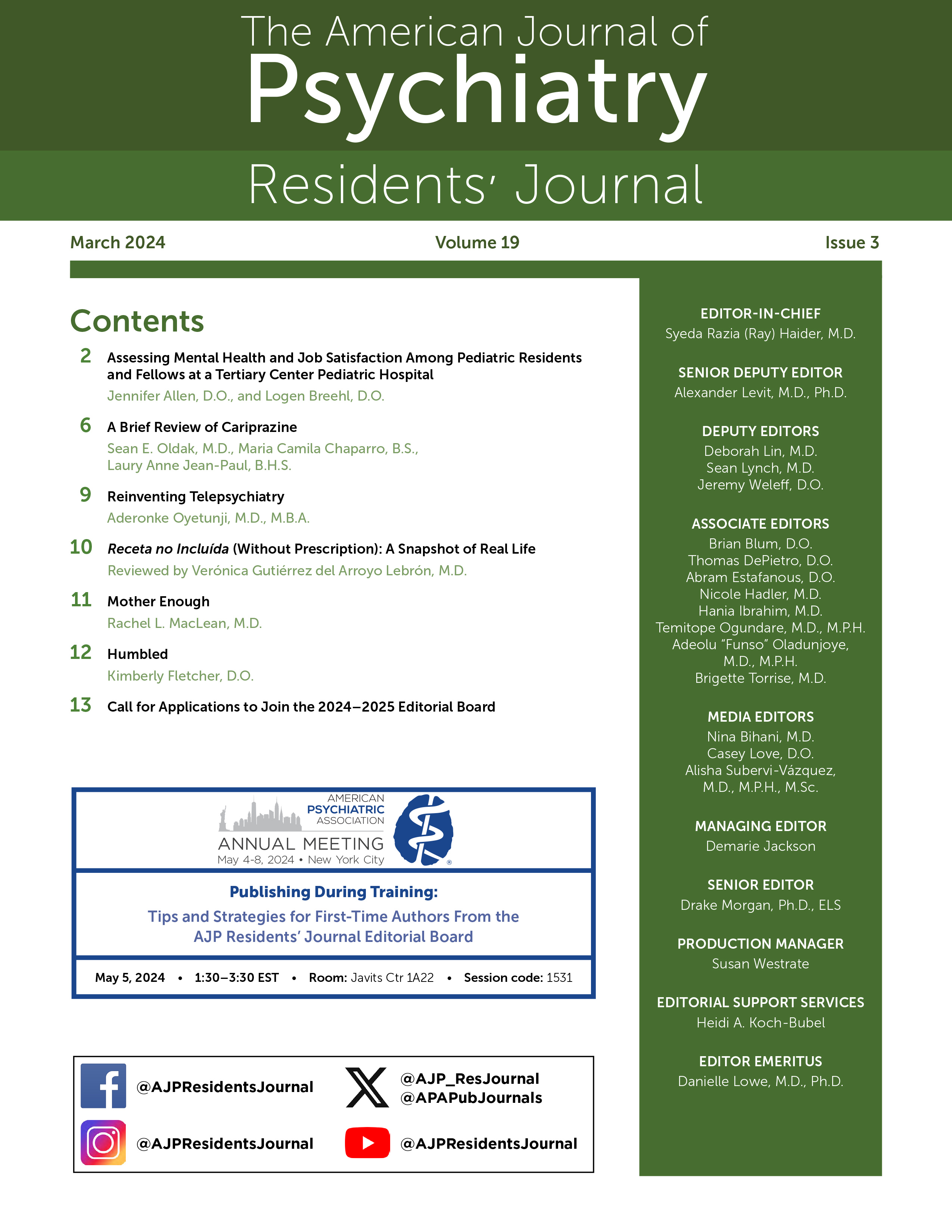Humbled
I sit at his bedside on a creaking trash can. The room smells of fast food, a caloric comfort he needs when just hours ago he perceived no comfort worth living for. He trembles; his few words barely escaping his lips. Sharing this moment, one of the worst in his life, is where I find my purpose in medicine. But this isn’t about me.
His eyes brim with tears. He emanates shame and, despite reassurances, apologizes repeatedly for expressing emotions. He hugs himself tightly, his withdrawn state in stark contrast to this large glass-paneled observation room. I feel a longing to embrace his hollowed body. I may be new to this, but I see a vibrant soul in him and want to coax it out. But again, this isn’t about me.
The bustling emergency department undermines my efforts to establish rapport. The doors open, and staff come and go—repeated assaults to his vulnerability. He gives details when asked. He struggles to provide reasons. What reasons are left? I feel my eyes welling and hope he doesn’t notice; I hope he doesn’t think I’m incapable of providing his care. I so desperately want to prove I can care for him. But I remind myself, this isn’t about me.
I know things about this man that no one else may ever know. I am honored by his confidence, by his willingness to answer my probing questions. I feel an urgency to assure him that his trust is not misplaced. I happily tell him that I’ll facilitate his admission to the inpatient psychiatric unit. He shifts. His recently relaxed arms flex rigidly over his legs. He averts my gaze, but his facial expression is unmistakable. I see fear there, even disgust. Perhaps now I should make this about me.
We discuss my assessment of his risk. “Discuss,” a generous word for this lecture. I regurgitate the reassuring phrases I’ve been learning. “I want you to be safe.” “It’s just for a short time.” “We can work on your coping skills.” His stance is firm. I lecture more and sprinkle in statistics. A powerful argument, I think. He picks his nails. I am frustrated by his resistance. Did I not establish enough trust? “I just don’t think I want to do that.” He won’t look at me. What’s gone wrong? Is this not about me?
I sit quietly for a time to gather my thoughts. I felt our alliance was strong. I did all the right things; at least, I think I did. Why am I not being successful? He hesitantly raises his right hand to caress his neck; I note the tremulousness in his fingers. My internal critic is brought to a halt. Is he frightened? A sense of disappointment creeps in. Why haven’t I asked? Why on earth haven’t I thought to ask? I blink tightly and release a sigh for myself, for allowing my title to sour my humanity. Finally, I allow empathy to surpass my desire for competency. “Can we talk through your concerns about admission?” His tears fall as he hesitantly meets my gaze. “I just really don’t wanna be tied up, Doc.” Nausea settles in my core. How could I have made this about me?



